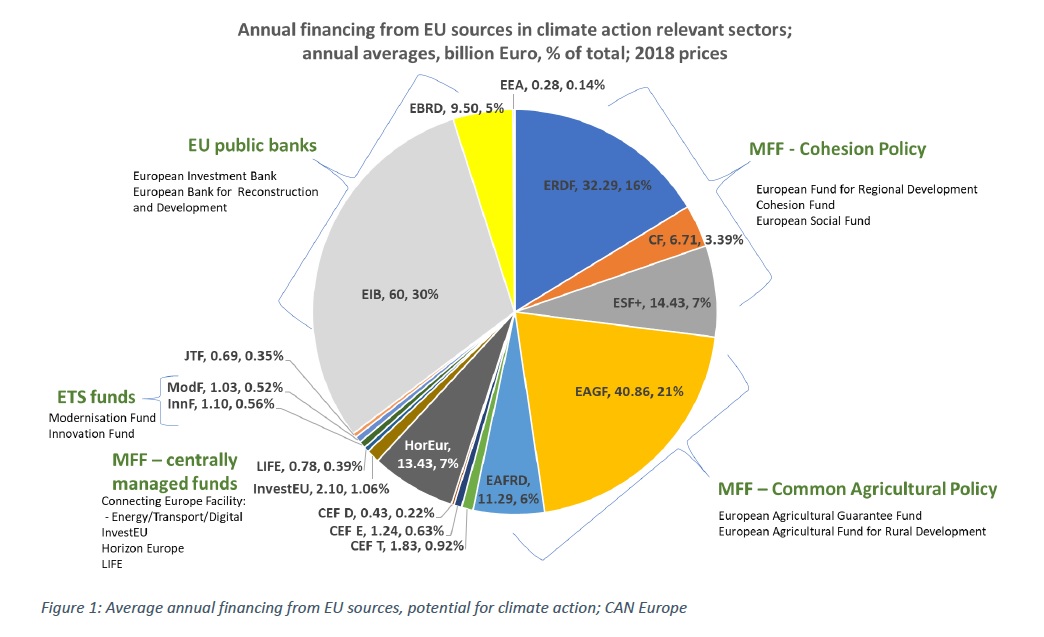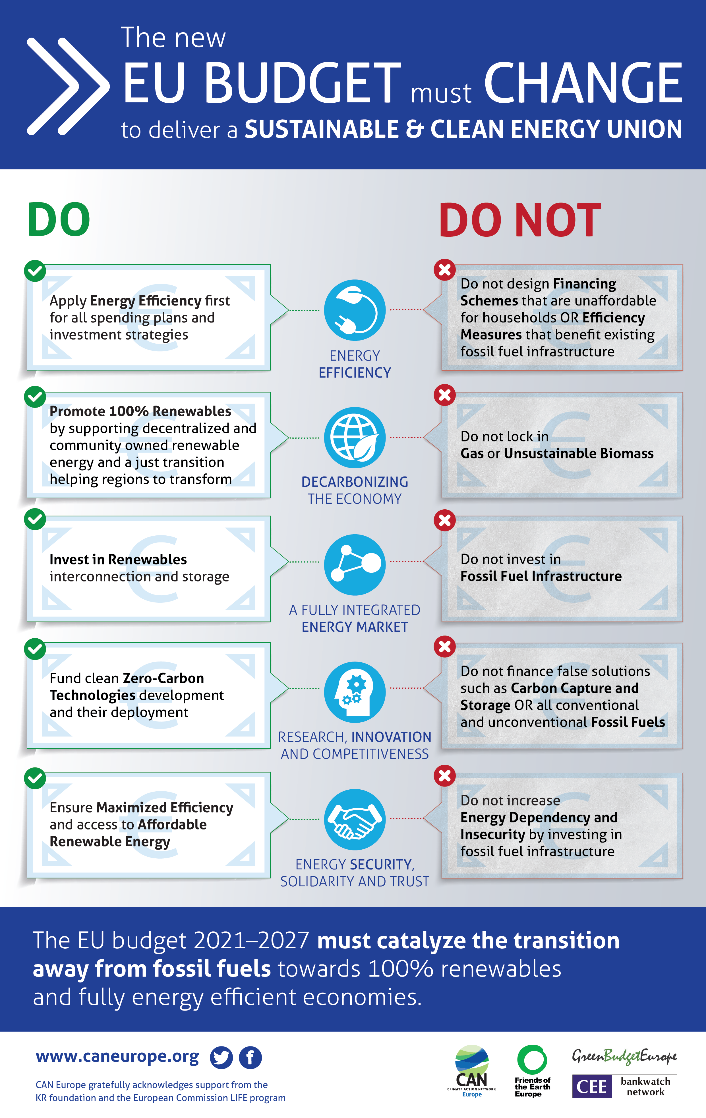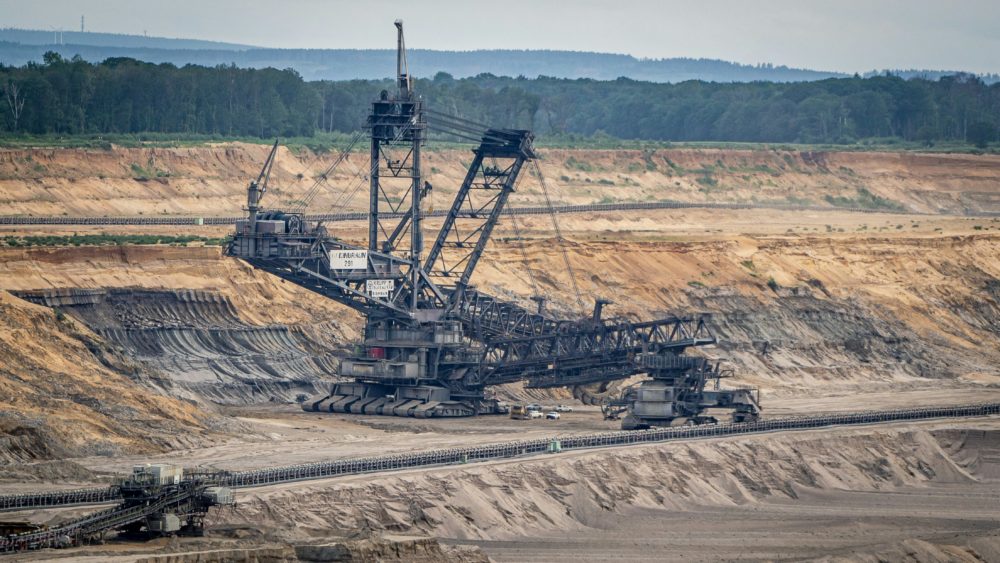The EU’s recovery funding
The COVID-19 pandemic and economic crisis is converging with the increasingly evident climate and biodiversity crises. Global warming and ecosystem deterioration are laying the ground for future upheaval of society. While the recovery measures must address the immediate health, social and economic urgency, they must support the development of a resilient and sustainable economy, in line with the Paris Climate Agreement and the European Green Deal.
Business as usual is not an option, and economy-wide untargeted measures would risk resuscitating dying and polluting industries and technologies that have no room in our future carbon-neutral economy.
Instead, the economic recovery measures must support ‘future-proofing’ companies through a rapid shift of their business models towards decarbonisation, thereby ensuring a much higher return on public investment.
Learn more about CAN Europe Urgency Plan for the Climate and Economic Recovery.
Reacting on calls for a wide response the EU adopted – as part of the overall EU budget – a financial package ‘Next Generation EU’ aiming to address the economic upheaval.
Despite some positive elements, the recovery package falls short of making climate ambition and the phase out of all fossil fuels the “new normal”.
The EU’s recovery efforts in a nutshell
Learn more about the deficits and opportunities of the EU’s recovery funding.
This is important to pave the way for an EU agreement by the end of this year on a substantially increased 2030 climate target of at least 65% emission cuts, to achieve climate neutrality by 2040, and to ensure recovery from the crisis is sustainable, supports green job creation, the just transition, and future-proofs the EU economy and livelihoods.
Financing the Green Deal and the Just Transition
The Sustainable Europe Investment Plan (SEIP) is the financial arm of the European Green Deal, created for financing European economies’ transition to zero-carbon emissions and expected to mobilise at least €1 trillion over the next decade. A key element of the plan is the creation of a Just Transition Mechanism (JTM) aimed at supporting those carbon-intensive regions of the EU – such as coal-mining areas – where moving to climate neutrality will be more complex.
The transition to a climate-neutral economy means learning new skills, innovating and implementing new technologies, renewing our infrastructure and cutting dependence on fossil fuels.
It requires not only more investments, but better, transformational investments, and great attention to issues of governance, namely the creation of an enabling regulatory and institutional environment. It will require additional investments in all sectors and areas of society.
This Overview of EU funding sources to build climate-neutral economies lists those EU funding sources with a potential to catalyse the transition to climate-neutral economies: it displays the various financing and funding instruments which are sourced and legally based at the EU level. Further on it highlights various opportunities for financing soft-measures, technical assistance and capacity building, needed to create a favourable investment environment.










